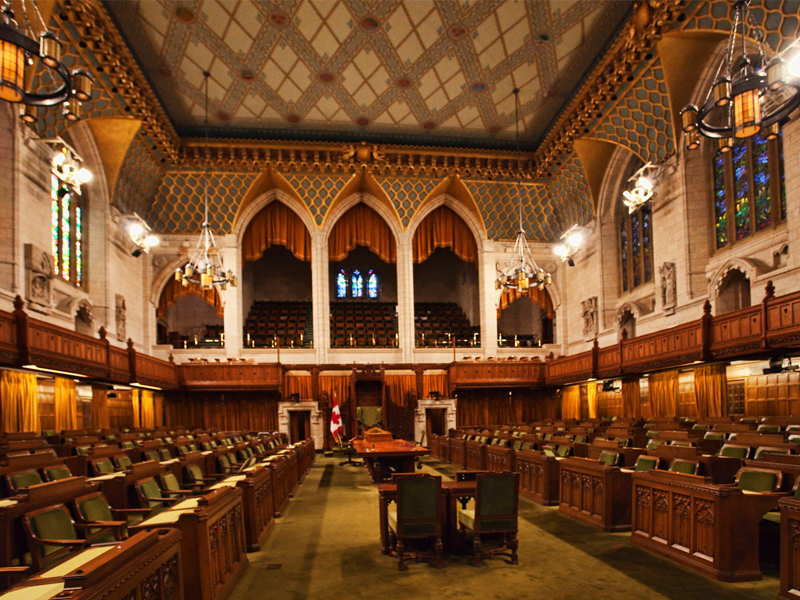
In real estate, location is everything. In politics, the mantra is narrative, narrative, narrative. That is why the first player to go public with his or her story usually retains home-court advantage in an ongoing dispute. The media will frame the issue around the first narrative.
Not all important aspects of an issue will fit into that frame; some will be neglected. The Jody Wilson-Raybould affair goes beyond “he said/she said.” Issues here involve financial markets, the law, simple good governance and the economy.
But because anonymous supporters spoke in favour of the former attorney general and minister of justice to the Globe and Mail, the media is preoccupied with arcane legal doctrine instead of the potential loss of 8,700 jobs. And the former minister is portrayed as a principled whistleblower instead of a combatant in a political power struggle. Key questions and issues are not being discussed.
Let’s look at three reasons a royal commission should be called:
1. Financial markets. There has already been one class-action lawsuit filed on behalf of shareholders of SNC-Lavalin Group Inc., which alleges that the publicly traded company failed to disclose that it was refused access to a plea bargain on charges of bribery and fraud through the newly created deferred prosecution agreement (DPA) program. (At press time, the class action had not been certified.) That shareholders be advised of a material development in a company’s affairs is a central principle of capital markets. Where were the securities regulators? It is not as if Canada has a shortage of those.
SNC-Lavalin has always prided itself on its blue-ribbon board. In fact, the current chairman of its board is none other than Kevin Lynch, former clerk of the Privy Council. What was the board doing when all these offences were allegedly committed?
This affair shows why Canada should have a national securities regulator accountable to Parliament.
2. The law. The DPA is something borrowed from the U.S. and the U.K. as an alternative to criminal prosecution of companies that are just too big to fail. SNC-Lavalin lobbied hard for months for the introduction of this legal mechanism, and for good reason. The company, which employs 8,700 across Canada, would be banned from doing business with the federal government for up to 10 years if it were convicted in court.
Apparently, SNC-Lavalin’s lobbying was successful. DPAs became part of Canadian law in September 2018 with the support of all political parties – and Wilson-Raybould, in her role as justice minister. She was the minister who steered the DPA through Parliament.
But Kathleen Roussel, director of public prosecutions, refused to extend the DPA option to SNC-Lavalin in September. And the attorney general backed her up. That was that, as far as Wilson-Raybould was concerned, even though she was responsible for this legislation intended to help SNC-Lavalin.
In May 2018, David Taylor, a spokesman for Wilson-Raybould’s office, told the Canadian Press that DPAs are “a way of holding corporations accountable while protecting ‘innocent third parties’ such as those who stand to lose jobs, pensions or investments in the event of criminal sanction.”
A royal commission should determine why the director of public prosecutions and Wilson-Raybould acted the way they did here. Why the change of heart?
When the DPA legislation was going through Parliament, a Senate committee asked Wilson-Raybould to be a witness to answer questions about her legislation. This is standard practice. Yet she declined. Was she not sold on her own legislation in the first place? A commission could ask this question.
A commission also could examine whether the fate of a company employing 8,700 people should be decided by a thumbs down by two people. A committee of cabinet would be better.
3. Governance: In the U.K., the attorney general is not a member of cabinet. In Canada, the justice and attorney general portfolios are held by one minister. How can one person be in charge of developing policy and legislation as justice minister and then make crucial legal rulings?
Obviously, the use of a giant omnibus bill to hide the DPA legislation was a big mistake. Had the DPA had its own bill, we might have had a civilized debate about saving people’s jobs and legal niceties.
It is probably a good thing that Parliament will not be sitting for most of March, to let cooler heads prevail.
Uncooperative co-executor passed over by court
Case illustrates the risks of appointing multiple executors